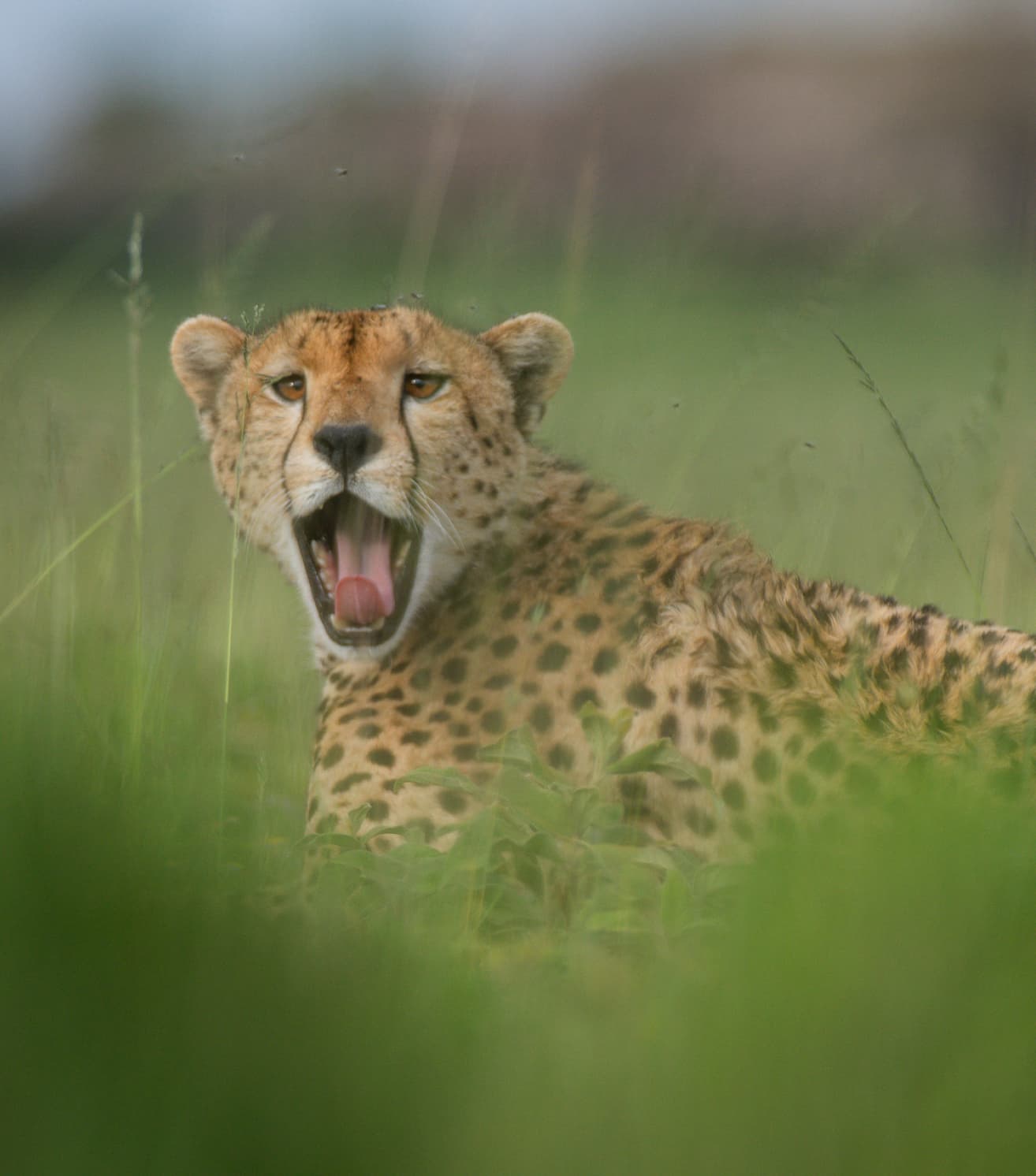

What To Expect on an Entara Walking Safari
Stepping out with the knowledgeable Entara guides will immerse all your senses as you uncover the secrets of the Tanzanian wilderness on foot.
We are often asked about our walking safaris and decided to put together answers to the more commonly asked questions.

Are walking safaris safe?
You are escorted by well-trained professional walking guides who intimately know their home turf. Follow your guide’s brief and instructions, and you have little to worry about. In need, they will act swiftly to keep both you and the wildlife safe.

What fitness level do I need to participate in a walking safari?
Any walk will be aligned with the group’s fitness. Walking safaris are generally slow, with plenty of breaks, and ideal for most fitness levels, regardless of time. A walking safari might last anywhere from two to four hours if done at a leisurely pace. However, a full-day or multi-day walking safari is recommended if you are looking for a challenge.

What should I expect to see on a walking safari?
Our walking safaris are conducted in areas with a high density of big game. While we often encounter many species of big game on our walks, such as elephants, lions, and leopards. Experiencing big game encounters cannot be guaranteed, and the focus of walking safaris is not large wildlife-behavior-watching opportunities.

Instead, they are an opportunity to experience the environment at a different pace and observe the more subtle aspects of nature that are difficult to appreciate from the vehicle. With the rattle of the engine and suspension gone, you are free to hear your footsteps and might even realize how loud your breathing is. Smell the wild herbs as you crush them underfoot or smell the sweet aroma of flowers carried by the wind; you stop to feel the rough textures of bark and overhear the chatter of a honeyguide.
You must give the right of way to the Sungusungu ant colony coming down an elephant path, and you realize how relative the scales of time and distance are when you are on foot and not carried in a vehicle.

On a walking safari, you become a participant rather than an observer. The baboon bark or impala snort is aimed at you as the super-predator, not the leopard or lion. As a result, you become aware of a vulnerability that becomes apparent, stimulating your senses to sharpen. Wind direction and strength, the sun’s angle, and the ability to interpret a bird’s call all become significant. In essence, it is also the test of a guide’s skill and guest’s discipline. A slight misstep might be the difference between a quiet and intimate wildlife observation and a cloud of dust and a cacophony of frightened birds followed by a few minutes of trying to decipher the tracks on the ground to determine who took off before he smelled or heard us.
Can children join a walking safari?
Children under the age of 12 are not permitted to go on Entara walking safaris. We have taken this precaution as we find that unfortunately, children are less likely to stick to our walking safari rules and can find it difficult to remain silent.
What are the top tips for a walking safari?
To enjoy your walking safari more, we recommend that you:
- Wear comfortable, neutral-colored clothing. Long sleeves will protect you from the sun as well as from scratches from thorns and bushes.
- Wear closed shoes and tuck your long trousers ends into your socks. Alternatively, you can wear gaiters.
- Spray your clothes with permethrin or another insect repellant.
- Carry a good pair of binoculars.
- Wear adequate sun protection in the form of sunscreen and a wide-brimmed hat.
- Arm yourself with curiosity.
- Stay quiet during your walking safari. It will enable you to see more and enjoy a more intimate experience.
- Don’t be shy to express discomfort so your guide can adjust his planning.


Walking in Olkeri

The Sounds Of The African Night








